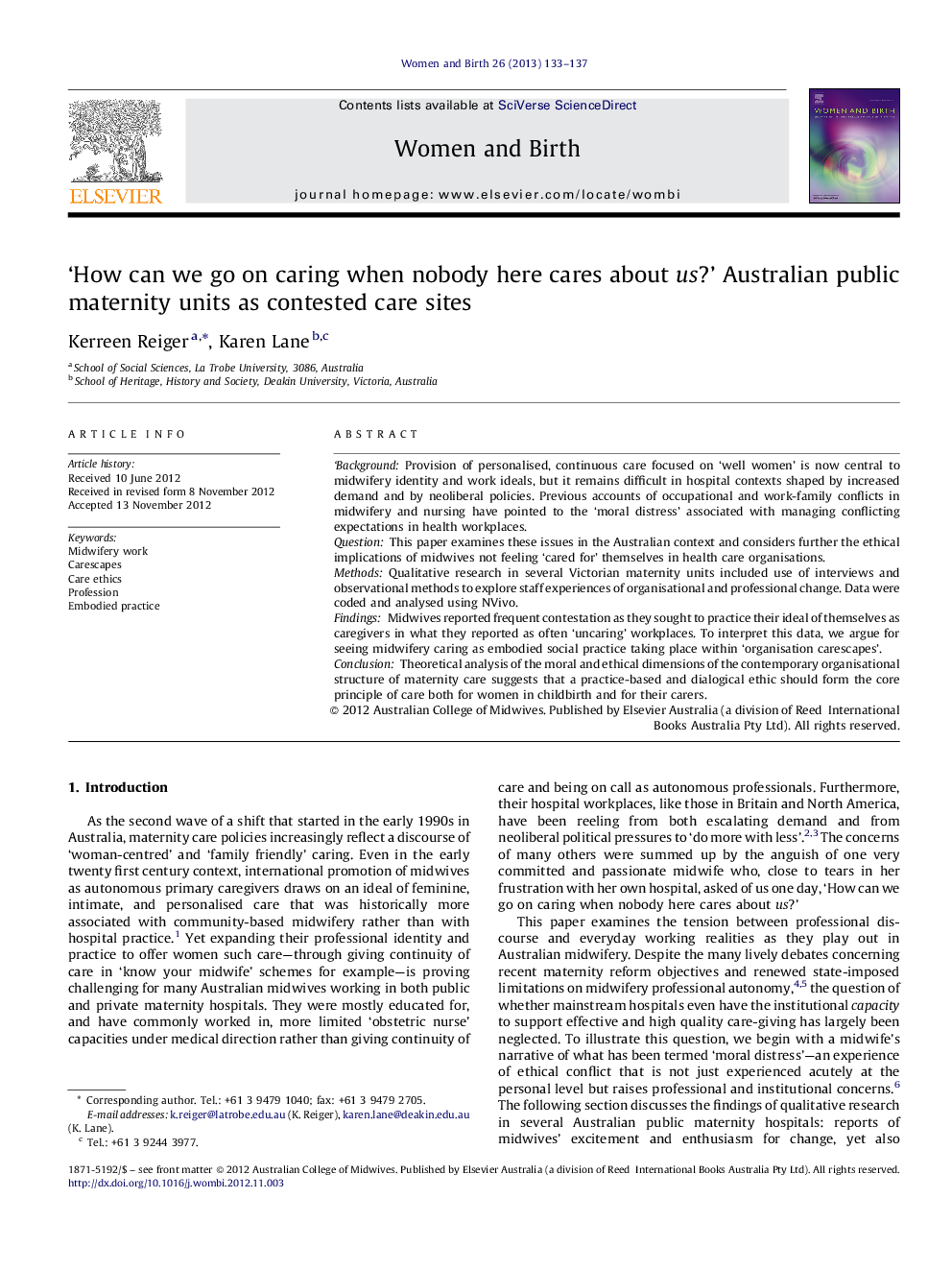| Article ID | Journal | Published Year | Pages | File Type |
|---|---|---|---|---|
| 2636301 | Women and Birth | 2013 | 5 Pages |
BackgroundProvision of personalised, continuous care focused on ‘well women’ is now central to midwifery identity and work ideals, but it remains difficult in hospital contexts shaped by increased demand and by neoliberal policies. Previous accounts of occupational and work-family conflicts in midwifery and nursing have pointed to the ‘moral distress’ associated with managing conflicting expectations in health workplaces.QuestionThis paper examines these issues in the Australian context and considers further the ethical implications of midwives not feeling ‘cared for’ themselves in health care organisations.MethodsQualitative research in several Victorian maternity units included use of interviews and observational methods to explore staff experiences of organisational and professional change. Data were coded and analysed using NVivo.FindingsMidwives reported frequent contestation as they sought to practice their ideal of themselves as caregivers in what they reported as often ‘uncaring’ workplaces. To interpret this data, we argue for seeing midwifery caring as embodied social practice taking place within ‘organisation carescapes’.ConclusionTheoretical analysis of the moral and ethical dimensions of the contemporary organisational structure of maternity care suggests that a practice-based and dialogical ethic should form the core principle of care both for women in childbirth and for their carers.
